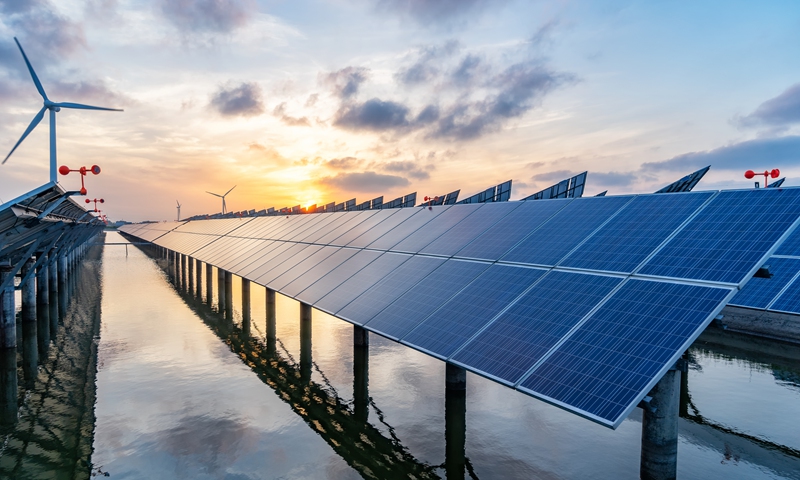The overarching US strategy of exaggerating the issue of China’s overcapacity … is aimed at checking China’s industrial development by resorting to a beggar-thy-neighbour policy. — China Daily
RECENTLY, some US and EU officials have said China’s overcapacity distorts global pricing and production patterns. Concur-rently, the Joe Biden administration is considering imposing high tariffs on Chinese steel and aluminum, potentially opening a new front in the ongoing trade conflicts in order to contain Beijing’s “Made in China” drive.
Overcapacity is an economic term that signifies a situation in which there is too much production capacity relative to current demand levels, and hence it should not be overly “pan-securitised”.
Capacity utilisation rates are crucial indicators of whether capacity is adequately leveraged, with a very high rate generally indicating a shortage and a low rate suggesting excess capacity or an irrational capacity structure.
According to the latest data from Trading Economics, the United States has a capacity utilisation rate of 78.3% while China’s stands at 75.9%.
Developed countries including the United States and European nations consider any rate between 79% and 83% an indicator of supply and demand. China’s rate is not significantly lower than the healthy range.
Moreover, China has eliminated outdated steel production capacity to a large extent, having reduced about 300 million tonnes of steel and one billion tonnes of coal capacities, including entirely eliminating 140 million tonnes of substandard steel capacity, over the past decade.
Western pressure on China’s industries and trade has intensified in recent years, with many Western countries restricting the export of semiconductors to China and curbing the import of Chinese-made new energy vehicles, while taking “reshoring” or “near-shoring” measures, further exacerbating global overcapacity and straining the global economic governance system.
This is not the first time the West is using “overcapacity” as a pretext to suppress China’s manufacturing sector. In 2012, the European Commission initiated an anti-dumping investigation into Chinese photovoltaic products, initially planning to impose a 47.6% tariff on them. But in July 2013, China and the European Union “amicably” settled the photovoltaic trade dispute.
Unlike previous occasions, however, this round of scrutiny by the West is focused on China’s advanced manufacturing, particularly in clean energy sectors such as electric vehicles (EVs), photovoltaic panels and lithium batteries – areas in which there is intense Sino-US competition and China enjoys competitive advantages.
In recent years, spurred by the “New Washington Consensus”, the Joe Biden administration has increasingly used administrative and other non-market forces to ensure it has the upper hand in its competition with China in strategic future industries.
Government intervention
Also, the United States has been strengthening the industrial policy through government intervention, which, in essence, is strategic protectionism.
As many as 49 industries including automobile, aerospace, defence, electrical equipment, information and communications technology, and renewable energy in the United States get huge government subsidies.
Also, while strengthening itself, the United States has also increased efforts to weaken others. In recent years, under the guise of combating climate change and promoting low-carbon development, the United States has enacted the Inflation Reduction Act, which imposes discriminatory subsidy policies on products from World Trade Organisation (WTO) member states, specifically EVs from China.
These measures distort fair competition and will disrupt the global supply chains, as well as violate WTO rules of national treatment and most-favoured-nation status.
With the US presidential election still seven months away, the “overcapacity” issue is likely to be exploited by US politicians on the campaign trail, and the United States could intensify its rhetoric on China’s overcapacity, possibly imposing tariffs on Chinese exports including EVs, power batteries and photovoltaic panels.
It could also ramp up anti-subsidy and anti-dumping investigations, and impose green or labour standards barriers to limit Chinese exports. Alternatively, it may continue to forge alliances based on different issues to contain China.
The overarching US strategy of exaggerating the issue of China’s overcapacity is not aimed at striking a balance between global supply and demand; instead, it is aimed at checking China’s industrial development by resorting to a beggar-thy-neighbour policy.
The narrative of overcapacity is crafted by the United States to curb China’s industrial upgrading, safeguard certain Western countries’ vested interests in the global industry and supply chains, promote the reshoring of supply chains to the United States, bolster the US’ manufacturing competitiveness, contain China’s technological progress and prevent it from achieving breakthroughs in advanced manufacturing and strategic industries. — China Daily/ANN
Zhang Monan is deputy director of the Institute of American and European Studies at the China Centre for International Economic Exchanges. The views expressed are the writer’s own.












